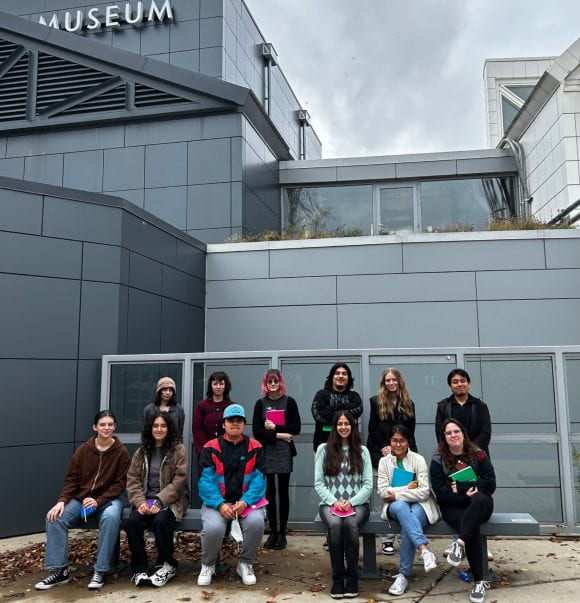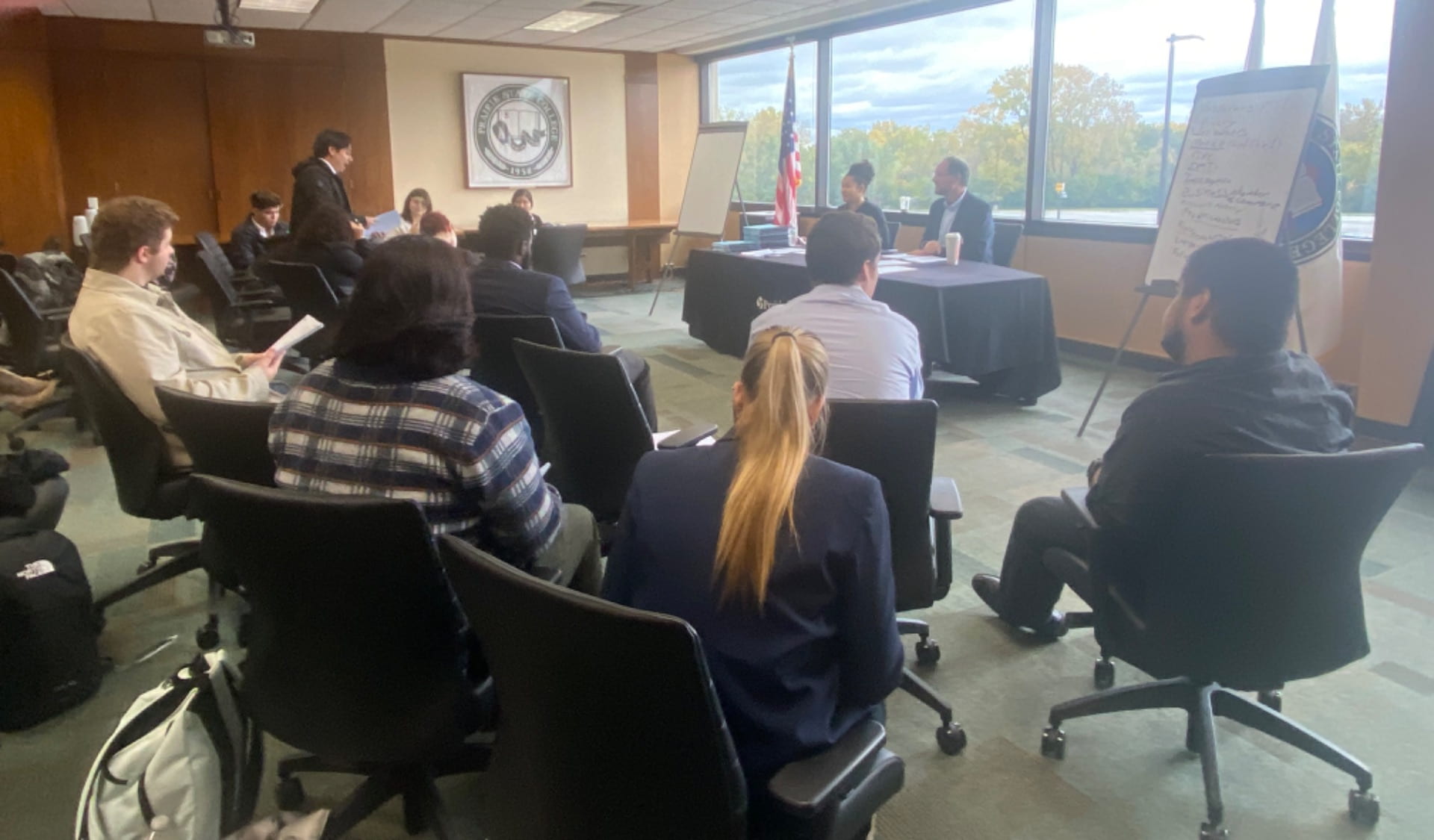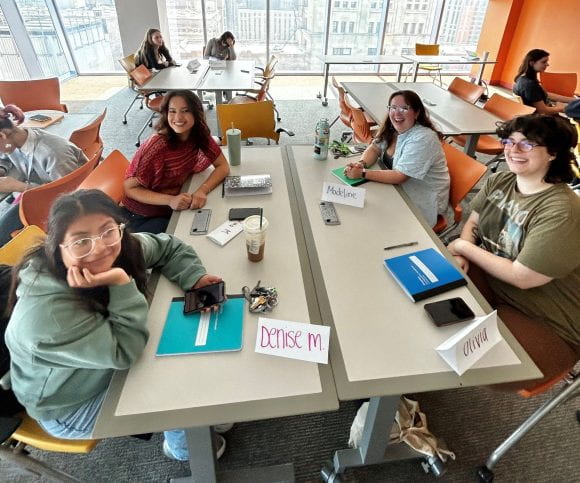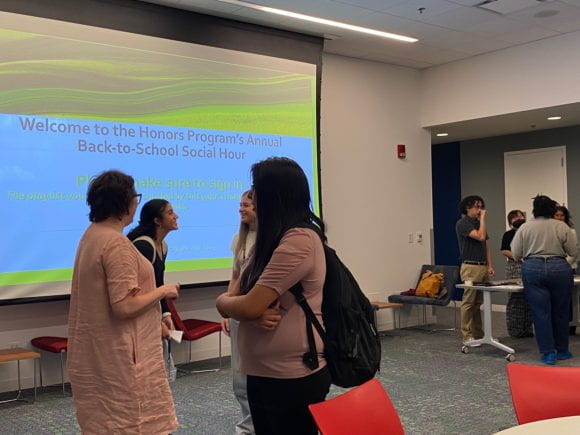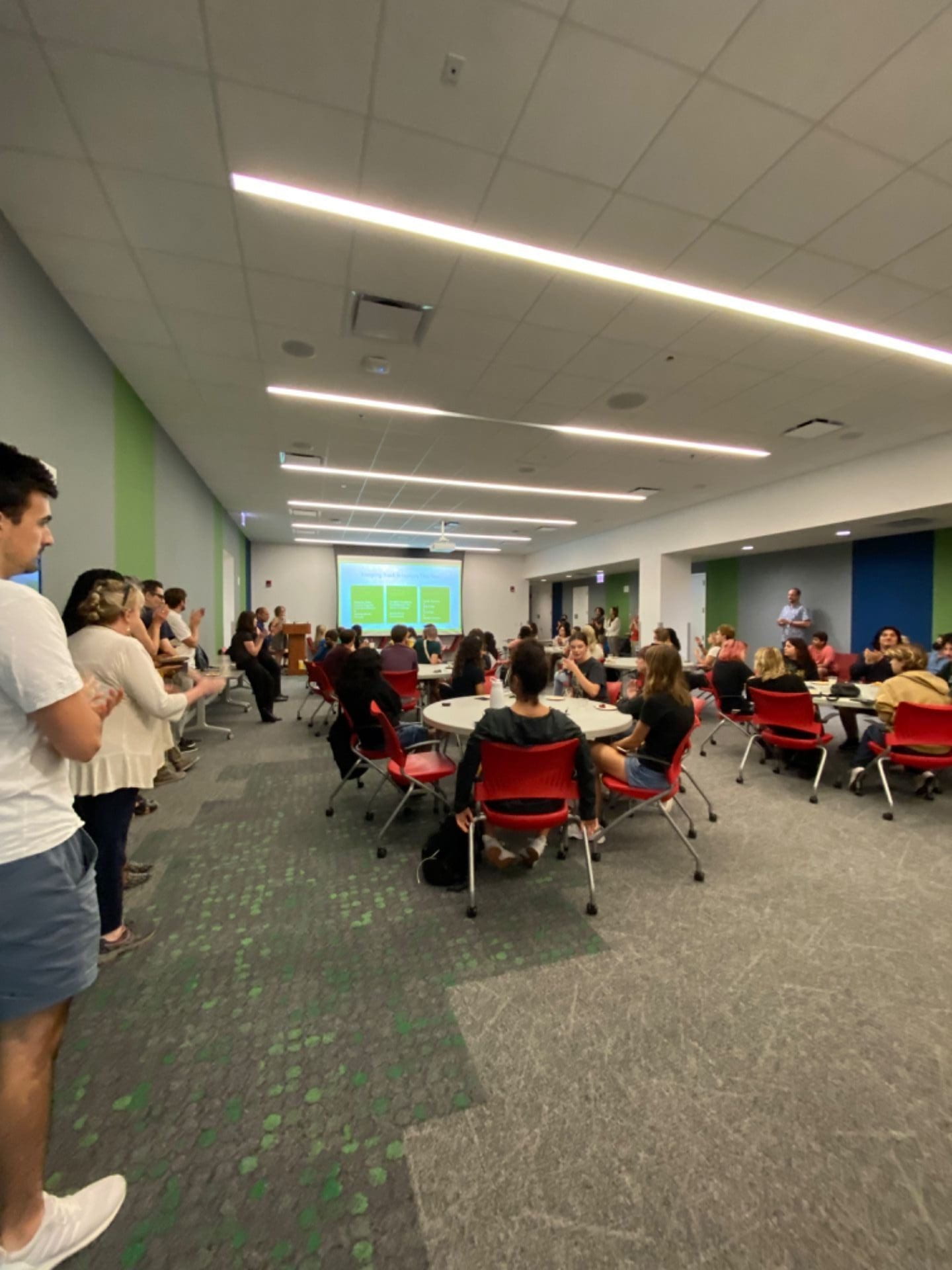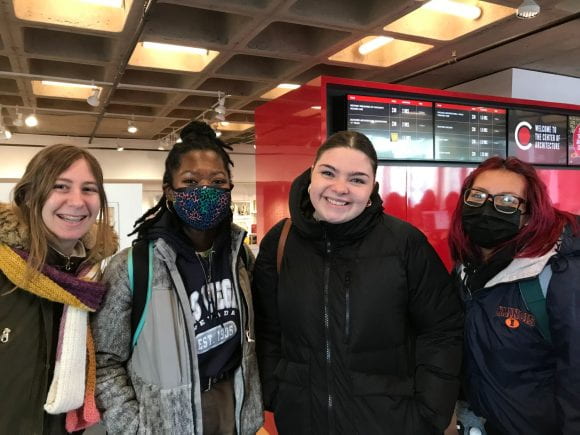As we settle into the Fall 2024 semester, the Honors Program Office would like to take a moment to welcome our new team of Honors Program Assistants! Bringing a diverse range of backgrounds and talents, our team is committed to enriching the Honors experience and supporting the academic journey of students in the program. The Program Assistants will keep our student body up to date through an active and engaging social media presence, and will provide in-depth information and stories on our blog. Camila, Mary, and Roan are excited to introduce themselves to our Honors Program community!
Camila:
My name is Camila and I am a sophomore majoring in sustainability studies, from the west of the city in the Berwyn/Cicero area. I was always interested in urban planning, because cities have always surrounded me, and as I moved through my education, I noticed the inequities embedded within the physical structures of our environments. Roosevelt resonated with me as a social-justice oriented institution, because of its location, and it was close to home. Although Roosevelt does not have a program directly related to urban planning, after a one-on-one shadowing opportunity with Professor Mike Bryson, I was convinced to ultimately study at Roosevelt. I was also intrigued by the Honors Program, because it resonated with my learning and provided me with a large amount of financial support, which alleviated most of my stress relating to the college application process.
As I gained more familiarity with the Honors Program as a student, I felt more comfortable and began engaging more with my courses. For example, I joined the Honors Exchange last year, which was the most memorable learning experience of my freshman year. I was thrilled to learn that the Honors Program office was looking for another Program Assistant during my second semester of freshman year. I resonated greatly with my Honors educational experiences and was excited to learn more through this position. Although I joined a bit later in the school year, I was still able to learn so much about our Honors office operations. I had the guidance and support of my three peers, who helped me learn about the many running pieces of the office, like the social media, blog, newsletter, club, and much more. This experience was great, and I enjoyed being part of the office as a student worker. I am super excited to continue working this year as the Lead Honors Program Assistant. My peers last year provided me with a welcoming and comfortable environment to learn and explore this position, and I hope to do the same this year. Together, we are working on many projects, ensuring this year will be memorable and filled with excitement!
Mary:
Hi! I’m Mary and I am a Junior here at Roosevelt this year. It’s my first year working in the Honors Program and I am so excited to start seeing the business side of the program in addition to the student side. I am a criminal justice major with a legal studies minor. Being a part of our school’s justice program has been so impactful in my learning journey and I have gained so much knowledge that I had no idea about before coming here. I am originally from Lafayette, Indiana, home to Purdue university, where I took an online college course before coming to Chicago called ‘Introduction to Serial Killers’. I decided to take this course because I graduated high school a semester early, but still wanted to wait until fall to go to college. This course also allowed me to get a sneak peek at if this was truly the major I wanted to pursue and I fell in love with it from the start. I chose to come to Roosevelt because my dad used to work at the University Center and I always knew I wanted to live there. Roosevelt seemed like the best fit for me based on the three colleges that live in that building. Three years later and I am so glad I made that choice. I sort of fell into the Honors Program my second semester here. I didn’t know our school had one, but I received an email saying that I would be a good fit and that I should consider joining; obviously I said yes! Going along with that, I was always curious about the students behind the desk in the Honors lounge and when I received the encouragement to apply, I was thrilled! This year, I am going to help with writing blog posts and coming up with fun ideas for the Honors Program social media accounts. I am very excited to see what lies ahead with this job for the upcoming semester, and figure out my place in this team.
Roan:
Hello! My name is Roan Daley and I am a sophomore here at Roosevelt. I am from Essex Junction, Vermont and I am a criminal justice major. I have had an interest in criminal justice from the time I visited the F.B.I. museum during an 8th grade field trip to Washington, D.C. After doing a technical program in high school, I knew criminal justice was what I wanted to pursue. What brought me to Roosevelt was a couple of things. I absolutely love the location, Chicago is my favorite city and I love going to a school where the city is our campus! I also love the social justice model that Roosevelt strives for. Social justice is something that is very important to me especially in relation to my criminal justice studies. What drew me to the Honors Program was the commitment to interactive learning such as discussion and collaboration-based classes. The Honors Program also offers scholarships for students which was a huge help for my academic success. I applied to be an Honors Program Assistant because I loved my first year in the Honors Program and wanted to expand my involvement. Going into my first year as an Honors Program Assistant, I am very excited for everything we have planned. My background is in social media and I look forward to the fun and creativity that comes with that!
Looking Ahead:
As you can see, our Program Assistants have established themselves as proud Rooseveltians and Honors students, connecting deeply to the mission of Roosevelt and the ethos of the Honors Program. This position provides a unique learning experience, and our team is eager to positively impact our community. Equipped with their various skills and interests, Camila, Mary, and Roan are well-prepared to undertake the tasks ahead of them. Through the work produced by our program assistants, Honors can continue providing comprehensive information and updates for program members that will boost engagement and encourage participation in Honors initiatives. Stop by AUD 711 Monday through Thursday between 9 am and 4:30 pm to be greeted warmly by these excellent students and enjoy the vibe of the Honors office! !

